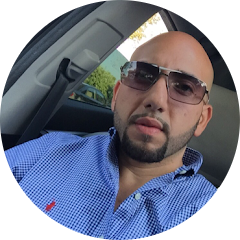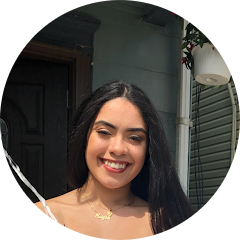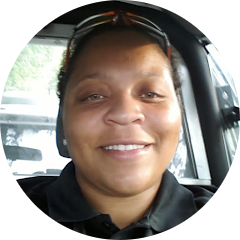Hotshot Truck Insurance
NITIC has over 30 years of experience providing hot shot insurance solutions to trucking professionals nationwide. With hundreds of 5-star Google reviews and an A+ rating with the BBB, NITIC is a trusted name in the industry, offering fast and reliable insurance quotes.
At NITIC, we prioritize customer service, fast claims processing, and flexible policy options to keep you protected on the road. Get a quick and hassle-free hotshot insurance quote today and experience why truckers trust NITIC for their hot shot insurance needs!
A Hotshot Truck Insurance Quote is Just a Click Away!
Hotshot truck insurance is designed for trucking companies specializing in rapid freight transfer.
As one of the nation’s leading commercial truck insurance companies with hundreds of 5-star Google reviews and an A+ rating with the BBB. the NITIC team leverages its 30 years of experience in providing competitive hotshot truck insurance quotes to our clients across the country.
Who Needs Hotshot Trucking Insurance?
People who use pickup trucks to transport less-than-loads within a short window, typically to individual clients, need hotshot insurance. It makes no difference if they also have a large vehicle that they employ for interstate or intrastate transportation. Hotshot trucking is an entirely separate category which is why it can typically require a customized hotshot truck insurance plan.
Three different truck types are employed in hotshot trucking:
- Category 3 - 10,001–14,000 pounds
- Category 4 - 14,001–16,000 pounds
- Category 5 -16,001–19,500 pounds
Hotshot Truck Insurance Coverages You Need
Comprehensive
This safeguards your hotshot truck against physical loss from fire, theft, and vandalism.
Collision
Combined Deductibles
Debris Removal
Understanding MCS-90 and BMC-91 Requirements
Two key components of hotshot truck insurance are the MCS-90 and BMC-91 forms. Below, we’ll provide an overview of each, as well as a comparison between MCS-90 and BMC-91 requirements.
1. MCS-90 Requirements:
The Motor Carrier Act of 1980 introduced the MCS-90 endorsement, which is a form required by the Federal Motor Carrier Safety Administration (FMCSA) for motor carriers engaged in interstate commerce. Key points about MCS-90 requirements include:
Liability Coverage: The MCS-90 endorsement serves as proof of liability insurance coverage for bodily injury, property damage, and environmental restoration.
Minimum Coverage: The MCS-90 endorsement ensures that motor carriers have the minimum required insurance coverage, regardless of any limitations or exclusions in their insurance policies.
Broad Protection: It provides broad protection for members of the public who may be injured or incur property damage as a result of the carrier’s operations.
2. BMC-91 Requirements:
The BMC-91 form is issued by the FMCSA and is required for motor carriers engaged in interstate transportation of property or passengers. Key points about BMC-91 requirements include:
Cargo Insurance: The BMC-91 form serves as proof of cargo insurance coverage for motor carriers transporting property in interstate commerce.
Cargo Liability: It provides coverage for loss or damage to cargo while in transit, including theft, damage from accidents, and other covered perils.
Financial Responsibility: The BMC-91 form demonstrates a carrier’s financial responsibility for the goods they transport, ensuring that shippers and consignees are protected in case of loss or damage to their cargo.
3. MCS-90 vs BMC-91:
While both the MCS-90 and BMC-91 forms address insurance requirements for motor carriers engaged in interstate commerce, they serve different purposes:
Liability vs. Cargo Coverage: The MCS-90 endorsement focuses on liability coverage for bodily injury, property damage, and environmental restoration, while the BMC-91 form pertains specifically to cargo insurance coverage for loss or damage to transported goods.
Public Protection vs. Cargo Protection: The MCS-90 endorsement provides broad protection for the public in case of accidents or injuries involving the carrier’s operations, whereas the BMC-91 form protects shippers and consignees by ensuring coverage for their cargo.
CDL vs Non-CDL Hot Shot Insurance
Whether you operate with a Commercial Driver’s License (CDL) or without one (Non-CDL), understanding the insurance requirements specific to your situation is crucial. Below, we’ll provide an overview of hot shot truck insurance for CDL and Non-CDL drivers, highlighting the differences in coverage and regulatory requirements.
CDL Hot Shot Insurance:
For hot shot truckers with a Commercial Driver’s License (CDL), insurance requirements typically align with those for traditional commercial trucking operations. Key points about CDL hot shot insurance include:
Higher Limits: CDL drivers often require higher liability insurance limits to comply with federal and state regulations. These limits vary depending on factors such as the weight of the vehicle, the type of cargo transported, and the distance traveled.
Regulatory Compliance: CDL drivers must comply with Federal Motor Carrier Safety Administration (FMCSA) regulations, including maintaining adequate insurance coverage, filing proof of insurance (Form MCS-90), and adhering to safety and operating standards.
Cargo Insurance: CDL hot shot truckers may need additional cargo insurance to cover the goods they transport, especially if hauling valuable or high-risk cargo. Cargo insurance protects against loss, damage, or theft of the transported goods.
Non-CDL Hot Shot Insurance:
For hot shot truckers operating without a Commercial Driver’s License (Non-CDL), insurance requirements may differ based on the type of vehicle and the scope of operations. Key points about Non-CDL hot shot insurance include:
Lower Limits: Non-CDL drivers may have lower liability insurance limits compared to CDL drivers, as their vehicles are typically smaller and carry lighter loads. However, insurance requirements still depend on factors such as vehicle weight and cargo type.
State Regulations: Non-CDL hot shot truckers must comply with state regulations governing vehicle registration, insurance, and operating authority. While federal regulations may not apply, state-specific requirements vary and may include minimum insurance coverage limits.
Specialized Coverage: Non-CDL hot shot truckers may benefit from specialized insurance coverage tailored to their specific needs. This may include coverage for smaller vehicles, lighter loads, and shorter hauls, with options for liability, cargo, and physical damage coverage.
Why Choose NITIC for Your Hotshot Insurance Needs?
The National Independent Truckers Insurance Company, RRG (NITIC) is a well-known multi-line commercial truck insurer. Because NITIC is one of the largest and most well-known insurance companies in the United States, with an AM Best Rating (B+) and a Financial Rating of B++, it is aware of the hazards that carriers face in the modern insurance market.
Hotshot Insurance FAQs
What is hot shot trucking insurance?
Hot shot trucking insurance is a specialized type of commercial truck insurance designed for owner-operators and small businesses that transport expedited loads using medium-duty trucks and trailers. It typically includes liability coverage, physical damage protection, cargo insurance, and other essential coverages to protect against accidents, damages, and financial loss.
Who needs hot shot trucking insurance?
Anyone operating a non-CDL or CDL hot shot trucking business needs insurance, including:
- Independent owner-operators
- For-hire carriers transporting expedited loads
- Small business trucking companies using pickup trucks with gooseneck or flatbed trailers
- Drivers hauling freight under a contract
What does hot shot insurance cover?
A hot shot insurance policy can include:
- Primary Liability Insurance – Covers bodily injury and property damage you cause to others in an accident.
- Physical Damage Coverage – Pays for repairs or replacement if your truck or trailer is damaged.
- Motor Truck Cargo Insurance – Protects the value of the freight you haul.
- Non-Trucking Liability (Bobtail Insurance) – Covers you when driving without an active load.
- General Liability Insurance – Protects against third-party injuries or property damage not related to a vehicle accident.
How much does hot shot trucking insurance cost?
The cost varies based on several factors, including:
- Driving experience and history
- Type of truck and trailer used
- Coverage limits and deductibles
- Operating radius and types of cargo transported
- USDOT authority and compliance
On average, hot shot insurance costs between $7,000 and $15,000 per year, but rates vary depending on your risk profile.
Do I need a CDL for hot shot trucking insurance?
Not always. If your truck and trailer have a combined GVWR of 26,000 pounds or less, you may not need a Commercial Driver’s License (CDL). However, insurance requirements will still apply based on state and federal regulations.
How do I get a hot shot insurance quote?
Getting a quote with NITIC is simple:
- Call us at (800) 726-8376 to speak with an insurance specialist.
- Fill out our online quote form on any page or click here.
- Receive a personalized quote and customize your coverage options.
Why choose NITIC for hot shot trucking insurance?
- Over 30 years of experience in trucking insurance.
- Hundreds of 5-star Google reviews and an A+ rating with the BBB.
- Competitive rates and fast claims processing.
- Coverage available in 48 states.
GET YOUR CUSTOM FREE QUOTE
Sheri is the best customer service rep around. Very pleasant and very informative.
Niomi Ross
4.7/5
TESTIMONIALS












FAQs
Hotshot truck insurance is a type of commercial insurance policy which is designed for truckers and businesses who haul cargo using a truck and trailer. If you are into this business, you require hotshot insurance coverage to protect it from several potential risks on the road.
- The restrictions your company has can cause prices to fluctuate. Depending on your shipper, the larger the limit is preferable since many shippers would be pleased to know that you can transport mounds of cargo.
- Your credit rating can also affect the cost of the insurance policy.
- The type of truck you operate.
- Damage to stationary objects and other vehicles during a collision
- Covers the expenses of repairs.
- The medical costs associated with accident-related injuries are covered by insurance.
- It also includes compensation for lost earnings for those hurt in auto accidents.
- It provides coverage for your vehicle or trailer in the event of a fire, robbery, damage, or other physical losses other than accidents.
Your cargo insurance requirement depends on various aspects. If you want adequate coverage for your vehicle then before setting its limit, consider factoring in the following:
- Type of truck: Heavy duty truck and old model trucks which needs regular maintenance and repair require a high level of coverage.
- Freight and cargo: The limit of insurance coverage should cover the amount and value of freight you carry.
- Moving hours: Trucks that transport shipments at the night are exposed to more risks than in daylight. So you need to set the coverage limit keeping that in mind.
There are multiple factors that affect the rate of hotshot trucking insurance. This means the cost of this truck insurance varies from trucker to trucker. The following are some of the major influencing factors that decide the rate of hotshot truck insurance:
- The value of trucks and trailers.
- What sort of cargo do you haul?
- The deductibles you have chosen.
- The limit of coverage.
- The radius of your business.
- The experience and driving record of the trucker.
For dually trucks, you need specialized trucking insurance namely hotshot insurance to protect it against various unexpected risks. This insurance is ideal for small trucks that transport goods under a speedy timeline. It covers the cargo, the vehicle used to transport it, and the trailer.
Hotshot truck insurance covers you against the following risks:
- Protect your truck and trailer in the event of a collision.
- Pays for the damages done to other vehicles or property.
- Pays for the truck repair costs after an accident.
- This policy covers the medical expenses arising out of an accident.
- Covers for the damages or loss of cargo after theft, collision, fire, etc.
- Reimburse for the cost of repairing or replacing the truck or trailer after an accident.





